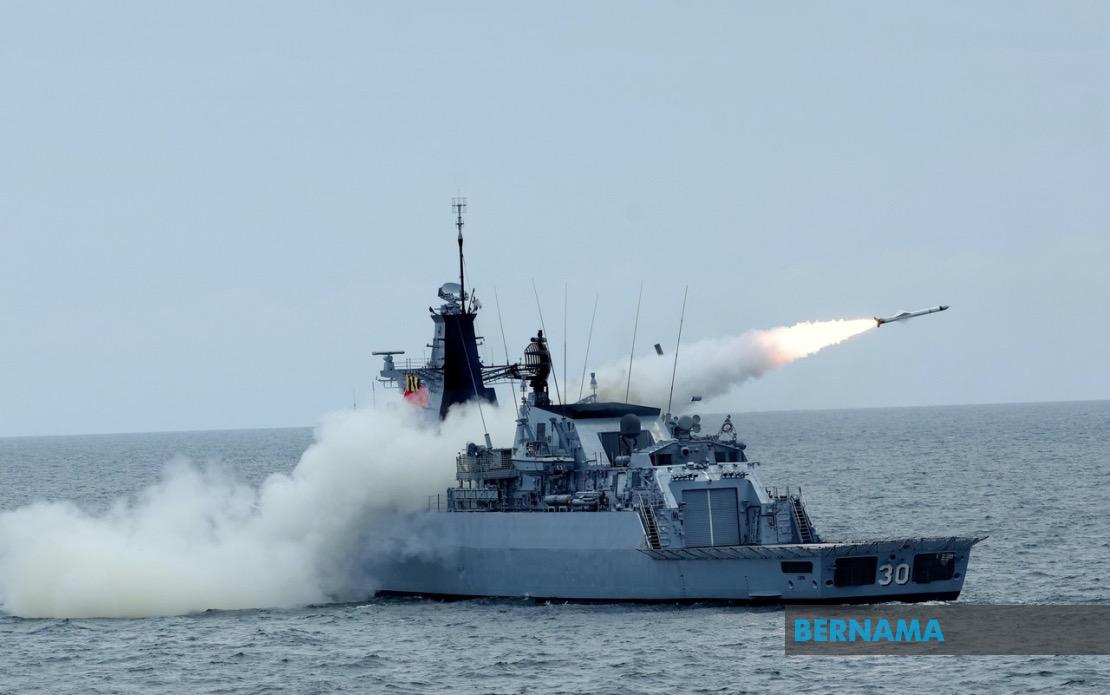KUALA LUMPUR, Sept 15 (Bernama) — Defence analysts assured Malaysians they need not worry and that the Malaysian Armed Forces (ATM) are well-equipped with numerous strategies to effectively manage border conflicts in the South China Sea should such a situation arise.
Dr. Azmi Hassan from the Nusantara Academy for Strategic Research emphasised that instead, it is more important to understand the challenges faced by the security forces in safeguarding the country’s maritime borders, particularly regarding the presence of foreign vessels in the Exclusive Economic Zone (EEZ).
“We shouldn’t worry about this issue because vessels passing through the EEZ are under international law, specifically UNCLOS (United Nations Convention on the Law of the Sea).
“To reassure the public about our defence capabilities, we can point to the June 2021 incident when the Royal Malaysian Air Force intercepted 16 Chinese military aircraft violating Malaysian airspace—an event that clearly demonstrated the effectiveness of our defence system,” he told Bernama.
The issue of Chinese vessels encroaching into Malaysian waters is not new, with media reports showing a rise from 163 to 200 vessels between the end of August and early September this year, marking a significant increase.
He stated that foreign vessels in the country’s EEZ may only be shadowing or observing national assets, which does not violate UNCLOS.
“Under international law, foreign vessels have the right to transit or navigate through the EEZ since it is considered international waters. However, fishing, collecting hydrographic data for oil exploration, and conducting military exercises are not permitted,” he explained.
Dr. Noor Nirwandy Mat Noordin, a Fellow of Psychological Operations at the Centre of Media and Information Warfare Studies, Universiti Teknologi Mara, emphasised that the South China Sea conflict should be addressed through effective diplomacy between Malaysia and China to establish a uniform approach.
“China has implemented the nine-dash line, claiming it as their territory, while Malaysia is also entitled to assert that this contradicts our EEZ rights.
“Moreover, the new maritime map released by China has been contested by the International Court of Justice as inaccurate. In this context, Malaysia must continue to defend its position and not yield to those demands,” he said.
Noor Nirwandy advised that the public should also not assume the South China Sea issue will lead to conflicts or physical confrontations between the two nations, as such matters are typically resolved through diplomatic means.
“Malaysia has never been involved in an international conflict that resulted in physical confrontations or military engagements,” he said.
Meanwhile, Azmi noted that the government appears to be focusing on reinforcing national defence, particularly through its decision to take over the company responsible for the construction of the Littoral Combat Ship (LCS) to ensure the project’s completion.
“Our shortcoming lies in the lack of LCS-class patrol vessels, which are equipped with advanced weaponry and capable of high-speed movement. The purchase of LCS represents a significant expenditure, but it will boost the Royal Malaysian Navy,” he explained.
The LCS project has drawn attention in recent years due to delays and cost overruns, with the initial budget of RM6 billion rising to RM9.18 billion and ultimately reaching RM11.22 billion.
Despite the high final cost, the MADANI government remains committed to providing the best equipment for the Armed Forces to enable it to defend the nation’s sovereignty.
To bolster the security of Malaysia’s maritime borders in the South China Sea, the Ministry of Defence also issued a Letter of Acceptance in June for the purchase of three additional Littoral Mission Ships (LMS) from the Turkish defence company Savunma Teknolojileri Muhendislik (STM).
— BERNAMA
Credit: https://www.bernama.com/tv/news.php?id=2340698















